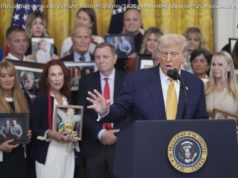Campaigners say the ongoing fight for women’s rights is being held back by a lack of funding, as money goes to pro-establishment groups
Women’s rights campaigners from across Asia have gathered in Hong Kong to discuss the lack of funding for their projects, which they claim are being ignored in favour of organisation that represent pro-establishment groups. Representatives from international women’s association Prospera and global women’s fund Mama Cash met with Hong Kong women’s rights charity HER Fund this week to discuss how they can raise the profile of women’s issues in Asia. Casey Kwok Ka-chai, communications officer for HER Fund, said there were about 1.5 million “hidden women” in Hong Kong who were marginalised because of their gender, including 330,000 foreign domestic workers, members of the LGBT community and the estimated 700,000 women who work as full-time carers for family members. “After the umbrella movement, it is clear that we care about the democratic movement in Hong Kong, but I really believe feminism perfects a democracy, ” she said. Kwok said groups such as the and a land grant indirectly from the government last year, were being favoured over smaller NGOs such as her own which promote women’s issues. She said corporates were also more likely to donate to service based NGOs than women’s groups because the results would generate better publicity for them, and avoid conflict with their often conservative stakeholders. “If an NGO would like to do some rights-based and advocacy work, resources are scarce, especially for the marginalised communities, ” she said. “I think a more philanthropic landscape and education in these matters are critical for the development of our civil society.” Although Hong Kong women remain comparatively better off than their counterparts in Asian countries such as Thailand and Cambodia, they continue to face significant barriers in employment. Women in the city, which remains a major international hub for trade and investment, only make up 10 per cent of representatives on company boards. They also continue to face a growing gender pay gap, according to government statistics. In 2015, they were paid on average HK$2,500 less annually than men, meaning the pay gap had widened by HK$500 since 2011, despite the government’s pledge to improve equality. Hong Kong girls continue to face high expectations in education, where they often outperform boys, but they are rarely seen in male-dominated professions such as engineering, and face pressures to maintain a career while being the perfect mother and housewife. Kwok said she was not confident that chief executive-elect Carrie Lam Cheng Yuet-ngor, set to be the city’s first female leader, will work to improve the position for Hong Kong’s women. “I don’ t think having a female chief executive will help the situation, because she is still restricted by the male tycoons who elected her, as well as male politicians in Beijing, ” she said. “It is not about her sex; we want a democratic system.” Meanwhile, Prospera, which is represented in 38 countries worldwide, five of which are in Asia, says the Asian region is severely underfunded in terms of support for women’s rights. The overall revenue for its five funds in Asia was just US$3.4 million in 2015. Lucia Carrasco, directors of programmes at Prospera, said her organisation wanted to build a network of properly funded organisations to promote women’s rights across the world. But she admitted that women’s rights groups internationally were facing increasing bureaucracy to obtain funding, as well as an anti-feminist backlash advocated by politicians such as US President Donald Trump. “Values worldwide are still being dictated by male privilege, ” she said. “Developed countries and regions like Hong Kong mask all this oppression. They will represent women as having all these opportunities, but just because a woman is economically empowered does not mean she is free from violence for example, or that she can access the health care she needs. This misconception is being disproven across the world.” Saartje Baes, programme associate for Mama Cash, said women’s rights programmes were worth investing in because they were human rights which affect the overall progress of society. “We still see huge disparity in the way women can exercise their rights, ” she said. “Feminism is not only about equality but also about inclusivity.” A Labour and Welfare Bureau spokeswoman said it was committed to the advancement of the interests and well-being of women in Hong Kong, dedicating HK$1million annually to women’s groups.






